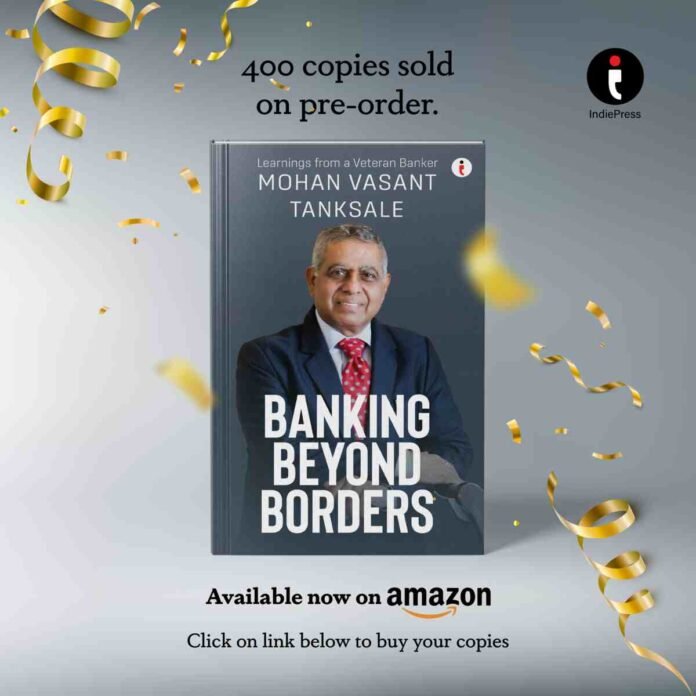- Could you provide a summary of your book and explain how it addresses some of the key challenges in today’s world?
Banking Beyond Borders outlines the evolution of the banking sector, starting from its nationalization in 1969 to its crucial role in fostering economic growth, particularly in agriculture and industry. The book covers several significant challenges faced by the banking industry today:
- The transformation required to support inclusive growth.
- The adoption of digital technologies to meet customer demands.
- Moving beyond traditional lending to a more solution-oriented approach.
- Understanding the credit life cycle and how to manage it effectively.
- The role of banks in preparing for Volatility, Uncertainty, Complexity, and Ambiguity (VUCA).
- The personal commitment necessary to achieve one’s professional aspirations.
- What motivated you to write this book, and what expertise or unique experience do you bring to this subject?
The author has always believed in continuous learning, reskilling, and sharing knowledge with others. His journey from being a clerk to eventually becoming the Chairman and Managing Director of a major bank, as well as his role as the Chief Executive Officer of the Indian Banking Association (IBA), inspired him to write Banking Beyond Borders. The book serves as a way to share the lessons and insights from over four decades of banking experience and from interacting with professionals across banking, academics, and finance sectors.
- What key insights or lessons can readers expect to take away from your book?
Readers can expect valuable lessons on:
- The importance of humility and commitment to one’s aspirations.
- Building strong teams and empowering others to lead.
- Turning challenges into opportunities.
- Emphasizing customer-centricity in every business endeavor.
- A comprehensive understanding of self, business, customers, and competitors.
- Can you share any real-life examples or case studies from the book that illustrate the principles you discuss?
Several examples throughout the book illustrate these principles:
- Credit by Choice: As Chief Manager of the Overseas branch in Mumbai, the author applied the principle of selecting potential credit clients based on data from Export Promotion Councils.
- Customer-Centric Leadership: On his first day as CMD of Central Bank of India, Tanksale emphasized to his staff that “you are my first customer” and focused on enabling them to serve the bank’s 3 crore customers effectively.
- Financial Inclusion: Tanksale’s career, from Rural Bank Manager to CEO of IBA, was focused on financial and digital literacy, and he continues to mentor fintechs and serve as an Independent Director on corporate boards today.
- Did you face any challenges or obstacles while writing this book, and how did you overcome them?
Yes, the writing process was affected by the COVID-19 pandemic, which disrupted his progress. Additionally, his roles as mentor, advisor, and board member were demanding, leaving limited time for writing. Despite these challenges, the support of close friends and colleagues kept him motivated, and his commitment to the project helped him push through and complete the book.
- What do you hope readers will gain from reading your book, and how do you envision it positively impacting their lives?
The book aims to motivate readers, especially young students and aspiring bankers, by showing them that anything is possible with hard work and commitment. Tanksale hopes the book will encourage readers to engage in self-assessment, embrace change, and adopt ethical approaches to achieving their goals. Additionally, the focus on financial and digital literacy for inclusive growth reflects the author’s belief in the social responsibility of the banking and finance sectors.
- In a world that’s constantly changing, how does your book remain relevant and adaptable to readers over time?
The core principles shared in the book—such as lifelong learning, adaptability, and passion for one’s goals—are timeless and will continue to be relevant. The author believes that readers should apply these principles to their unique circumstances and remain adaptable to change. By embodying the “LEAP” mindset (Learn, Excel, Adapt, Passion), readers can stay relevant in a rapidly evolving world. The book’s enduring value lies in these universal lessons and their application across time and context.
Don’t miss out on this inspiring tale — get your copy today!


